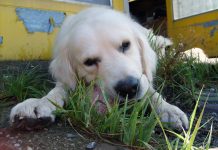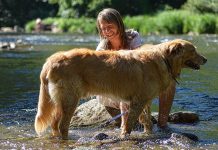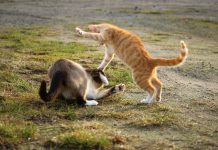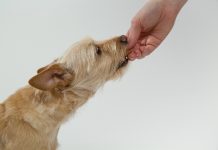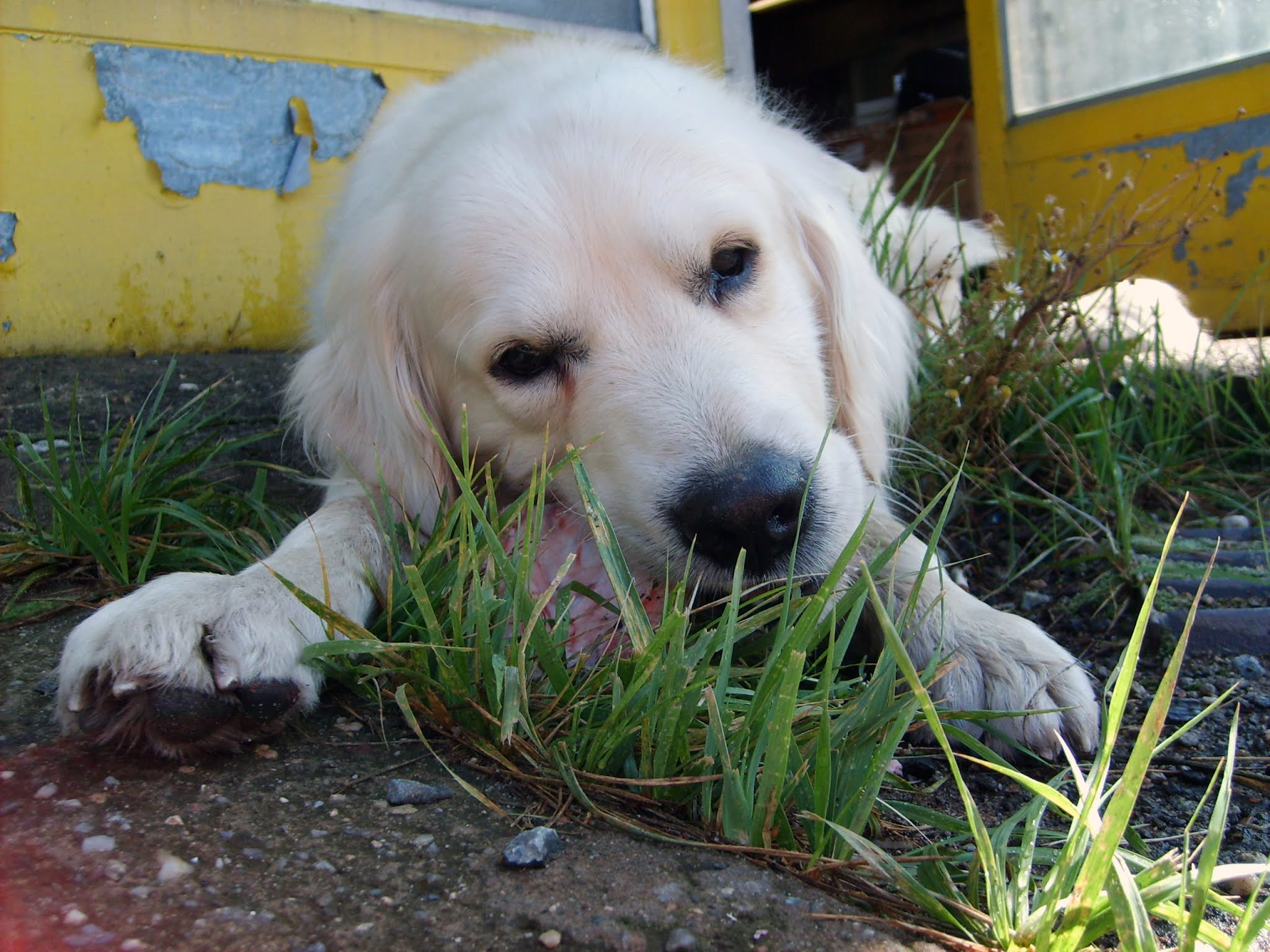Veterinarians will inform you that they reply this query daily, daily, implying that many canines eat grass. Pica is the consuming of “bizarre” non-food objects (reminiscent of grass) and could also be associated to a weight-reduction plan low in vitamins, nutritional vitamins, or minerals. However, if canines on well-balanced industrial meals are usually not nutritionally insufficient, why do they eat grass?
The query could also be simple, however the answer isn’t.
Is Consuming Grass A Physiological Requirement?
One frequent false impression is that canines chew grass to deal with abdomen misery. Some canines eat grass with zeal, solely to vomit shortly thereafter. This is the hen vs. egg conundrum: Is it attainable for a canine to eat grass to vomit and ease an upset abdomen, or does he purchase a stomachache and vomit because of consuming grass? As a result of research reveal that lower than 25% of canines vomit after consuming grass, it’s uncertain that they use it as a type of self-medication. In actuality, simply 10% of canines exhibit signs of illness earlier than consuming grass. The essential conclusion is that the overwhelming majority of grass-eating canines are usually not sick and don’t vomit.
“The conclusion is that the overwhelming majority of grass-eating canines are usually not sick and don’t vomit afterward.”
Grazing, however, might fulfill one other digestion requirement. Canine require roughage of their diets, and the grass is a wonderful supply of fiber. As a result of a canine’s capability to digest meals and move feces is affected by an absence of roughage, grass might help their physiological processes to function extra easily.
Warning: In case your turf-eating canine displays signs of abdomen ache, he could also be affected by a medical situation reminiscent of gastric reflux, inflammatory bowel illness, or pancreatitis. Seek the advice of your veterinarian to rule out any main medical considerations and to acquire the correct remedy.
Is Consuming Grass A Psychological Requirement?
A canine’s day revolves round his homeowners’ actions, as he watches them go and waits for them to return. Though most canines like being outdoors, others develop into bored when left alone and require stimulation. Nibbling on simply accessible grass helps move the time.
Canine search human connection and will attempt to entice their homeowners’ consideration by participating in undesirable habits reminiscent of chewing grass in the event that they really feel ignored. Moreover, fearful canines eat grass as a type of consolation, just like how nervous folks chew their fingernails. Whether or not canines are bored, lonely, or nervous, it’s common to see a rise in grass-eating when proprietor interplay time declines.
What can their homeowners do to assist these grazing canines? A brand new toy or an outdated t-shirt with its proprietor’s acquainted aroma might give some aid for frightened canines. A puzzle toy that comprises meals and challenges the canine will give psychological stimulation and cut back boredom. Extra frequent walks and rigorous playtime profit extra lively canines. Doggie daycare could also be a pleasant alternative for canines that need to socialize with different canines.
Is It Instinctual To Eat Grass?
Your canine’s forefathers didn’t eat kibble in sealed sacks. Canine within the wild balanced their meals by consuming the whole lot they hunted, together with meat, bones, inside organs, and abdomen contents. Consuming an entire animal supplied a relatively balanced weight-reduction plan, particularly if the prey’s abdomen contained grass and vegetation, which glad the canine’s fiber requirement.
Canine are usually not pure carnivores (solely eat meat), however they’re additionally not omnivores (eat each meat and vegetation); within the wild, canines eat the whole lot that helps them meet their elementary dietary necessities. In accordance with stool checks, 11-47 p.c of wolves eat grass. Fashionable canines wouldn’t have to hunt for meals, however that doesn’t suggest they’ve misplaced their innate scavenging intuition. Some canines, even those who eat industrial pet food, will eat grass as a memory of their ancestors and the need to be scavengers.
Consuming grass is a behavioral concern for these canines which will or might not be an issue in any respect. You don’t want to be involved in case your canine doesn’t develop into sick because of the odd grazing session, as fixed parasite safety is obtainable (intestinal parasites may additionally be consumed with grass). Conduct modification might trigger extra hurt than good by interfering with pure inclinations.
Do They Get pleasure from Grass?
Regardless of the a number of well-thought-out arguments for why canines eat grass, we can’t ignore essentially the most primary of all: they simply get pleasure from it. Canine might love the texture and taste of grass of their tongues. Many canines are grass connoisseurs, preferring to eat grass when it’s first budding within the spring.
How Can I Get My Canine To Stop Consuming Grass?
The grass isn’t the best snack in your canine, regardless matter why he eats it. Whereas the grass itself isn’t detrimental to your canine, the herbicides and pesticides placed on it may be. Moreover, when choosing grass from the bottom, your canine might eat intestinal parasites reminiscent of hookworms or roundworms, which contaminate the grass in fecal remnants from different canines. So, how will you put a cease to the grazing?
“Your canine may additionally take in intestinal parasites reminiscent of hookworms or roundworms that contaminate the grass in fecal leftovers from different canines whereas plucking the grass off the bottom.”
Canine that reply to meals incentives might be educated to stop consuming grass in alternate for a greater different. Which means you must carry rewards with you if you stroll your canine and accompany him on rest room breaks. When the canine leans all the way down to munch grass, redirect him by urging him to go in a special path, or concern a verbal admonition and reward him when he complies.
Affection-driven canines could also be educated utilizing the identical method as described above, merely changing constructive verbal reinforcement and touching as incentives. Canine who take heed to vocal orders might solely want a easy “heel” command to interrupt the grassy snack and re-direct their curiosity.





